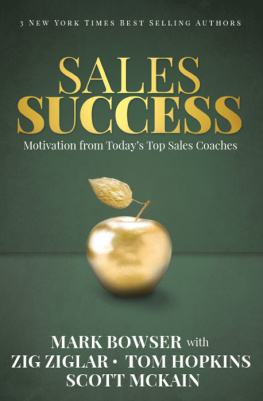Is it even possible to change fields?
When I initially decided to make the switch from pharmaceutical (pharma) sales to devices, I saw it as a natural progression within the medical sales arena. Little did I know that this was not the opinion shared by the entire healthcare industry.
Why pharma reps get branded
Generally, it appears pharmaceutical sales professionals have involuntarily developed an unfavourable reputation in the eyes of the device sales world. My experience has uncovered three major factors:
1. The perception that pharma is a much softer and more market-orientated sales environment . In contrast, a medical device/healthcare sales role is a significantly more transparent environment where the individual is solely accountable for a territorys results.
2. The perception that pharma reps are lazy entertainers with little work ethic, e.g. once an individual has reached their target GP call rate for that day, they switch off and head home. Unfortunately, a minority do abuse the autonomy of the role in this way, so its no surprise why some healthcare companies have developed this opinion.
3. The perception that pharma reps would struggle to adapt to a more consultative selling approach. The fundamental selling style in pharmaceuticals is very much concept based. By contrast, selling a physically tangible product which requires demonstrations and training of healthcare professionals is the expectation in devices. In some roles, this will include interacting with surgeons and consultants regularly.
These are, of course, sweeping generalisations but it is important that you are aware of these views in anticipation of how to handle them if you are seriously considering moving industries.
How to rid yourself of the stigma and stand out?
The good news is that pharma reps can truly disassociate themselves from this stigma by using comprehensive work-related examples which contradict these reservations, including:
- Using situational examples/evidence of adapting your selling technique e.g. shying away from your corporate sales training with a difficult customer and adapting your selling approach to show empathy and appear to be adding real value, resulting in a favourable outcome.
- Using situational examples/evidence of a great work ethic and going the extra mile. As a primary care rep, covering your hospital sales specialists duties is a great example of this. Selling to clinical and non-clinical decision makers and influencers at secondary care level, as well as managing primary care, really is demonstrating going above and beyond.
- Using situational examples/evidence of individual high performance as opposed to what your team has achieved relative to the rest of the sales force. Data showing cash sales growth, improved territory performance or an increase in the market share of a product you had sole responsibility for. On this note, I have always remembered something a recruiting manager for a medical device company explained to me, ....when giving competency based examples during interviews, this is where the majority of pharma reps fall down. The main reason is because the termwe did xis used too often as opposed toI achievedthis market share/cash sales growth for this product, within this time frame.
You will then be expected to expand on these events, most commonly using the S T A R L model (situation and task, action, result and learning) showing how you accomplished these achievements, what action you took to overcome objections and obstacles, and what skills you demonstrated throughout the process .
The good news is that more device companies are considering pharma reps
There is light at the end of the tunnel compared to previous years, with approximately 40% more device companies considering and recruiting more pharma candidates as time goes on . Youre probably wondering why? Well, take this example: a recruiting manager of a medical device company is recruiting for a vacant patch where market share and sales have been dwindling. It turns out that the major competitors ace sales rep converting all the business is from a pharma background 4. So, would one continue to sideline pharma reps because of the preconceptions I mentioned earlier, or begin seriously considering these individuals? What would you do?
Does having little pharma experience matter?
Contrary to what some recruitment agencies will tell you, I have found the less experience you have within the pharma industry the better probability you have of securing a devices role. I believe this is based on the big difference in selling styles and the dynamics of a devices role (revealed in more detail in chapter 4), which initially will come as a major shock to the system and take some real getting use to. Therefore, from a healthcare employers perspective, the less refined and less corporate pharma an individual is, the more likely they will be able to be moulded into the industries way of working. On the contrary, thats not to say that you cant switch industries as a well seasoned pharma rep, but it may just be that little more challenging.
My advice would therefore be: the quicker you can make a move away from pharma, the better.
Stick to your goal and ignore the naysayers
During your job hunt for a devices role you may inevitably come across anti-pharma medical sales agencies. You may even see adverts which specifically state no pharma repsor pharma backgrounds not considered. This could be down to the type of clients the recruiters deal with who specifically deny pharma reps even a chance of interviewing (remember theres still approximately half who dont consider pharma reps ).
For those with leaner pharma experience, you may also find recruiters telling you you need more pharma experience in order to cross over to devicesand then comes the I have a fantastic new pharma role thats just come in ..... sales pitch. Well, you already know the answer to this one! For the more seasoned rep, a personal favourite of mine, which I guarantee you will come across is ... a lot of pharma reps are trying to get into devices right now ..... Well, the fact is there are always going to be a lot of ambitious pharma reps wanting to make the move across. Its a lucrative and unique industry after all. However, a large majority will go in blind, not having a clue what the devices industry is all about and how it differs from pharma. So, congratulations, you are already 10 steps ahead of the pack by committing your time to reading this guide.
Whichever seemingly insurmountable scenario you find yourself in, you have to be single- minded and steadfast in your approach to wanting a career in medical device sales, regardless of the negative thoughts and opinions you may encounter along the way.
I was told numerous times by recruiters that I would never make it due to my lack of sales experience and in particular my pharma background. Like all goals in life, you will always have the sceptic, negative individuals who try to deter you from achieving success. Just remember, if I could do it, then so can you!
Taking a quick look at the industry
How does the devices industry fair in a recession?
Generally speaking, growth in the industry has not stopped despite globally fluctuating economies. The main reason for this success is probably the self-sustaining nature of healthcare. In essence, the same technology that makes it possible for people to live longer engenders the need for more healthcare technologies to enhance the quality of an extended lifetime .


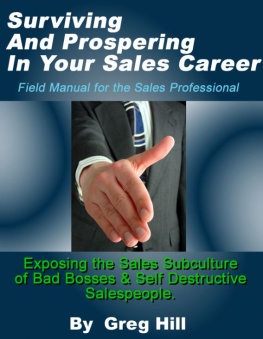
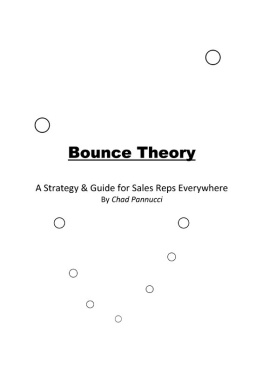
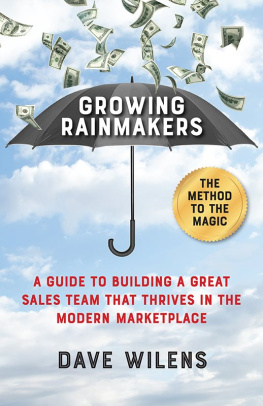
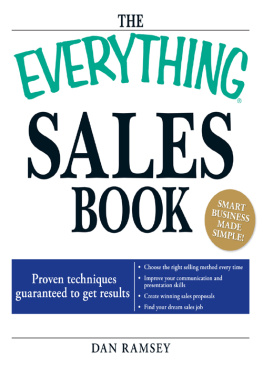
![Saint Francis de Sales [Sales - The Saint Francis de Sales Collection [15 Books]](/uploads/posts/book/266802/thumbs/saint-francis-de-sales-sales-the-saint-francis.jpg)
